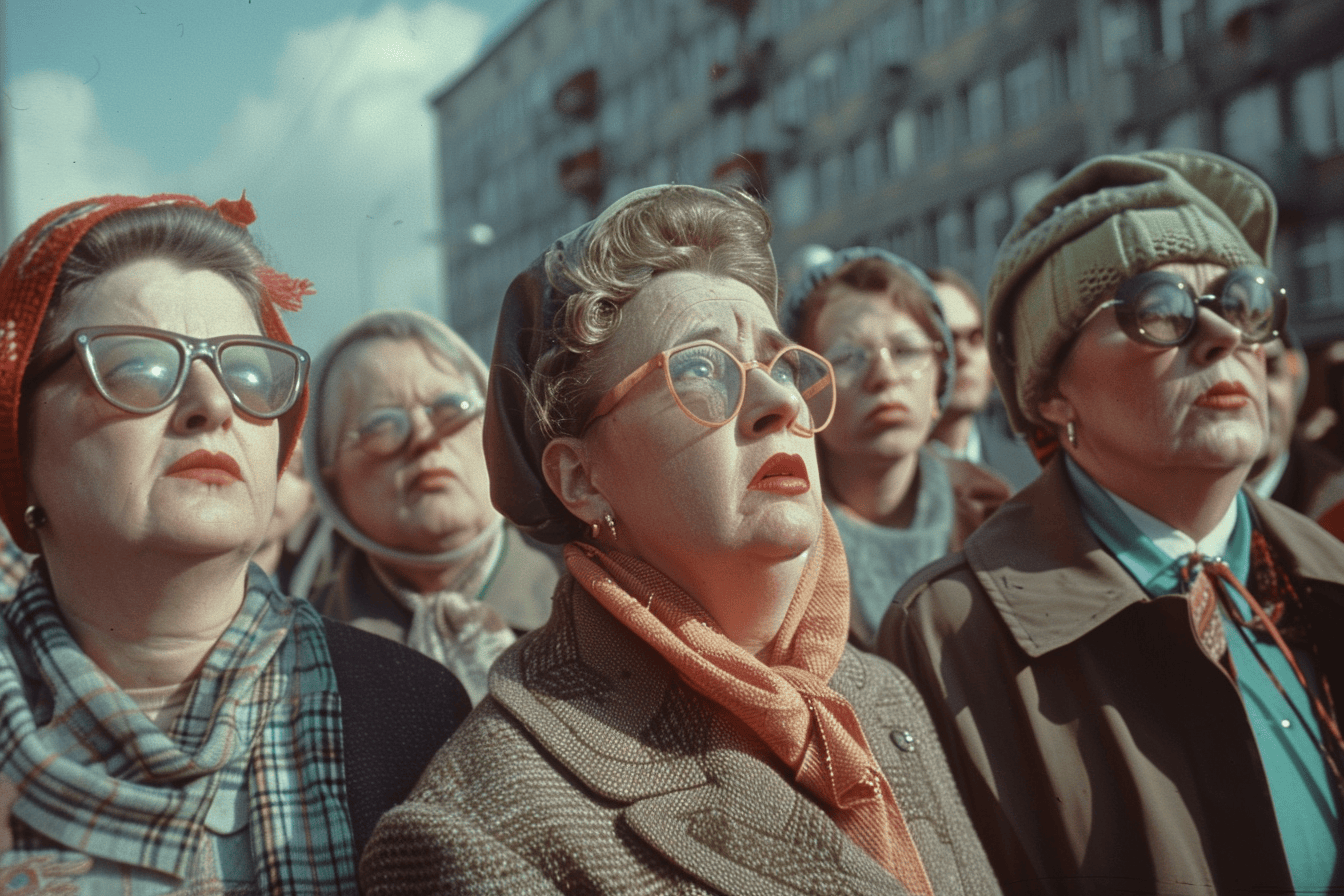Typically East German
“Don’t rip it open like a western parcel!” This simple sentence probably divides Germany, because while one half would nod in understanding, you would only see question marks on the other half’s faces. I experienced something like this myself once during my time at university – in that case, the parcel in question was a packet of biscuits that was opened somewhat ruthlessly. Friends of mine who grew up in the western part of Germany with equally West German parents did not understand what I meant at all, because this statement is apparently only familiar in East Germany.
It dates back to the time of the German partition. At that time, it was practically impossible for East Germans to travel to the West. In return, however, a number of parcels found their way across the border. These were sent by relatives who lived in West Germany after the partition and were filled with all kinds of products that made you the king of the schoolyard as a pupil in the East. These were such everyday things as western coffee, chewing gum, chocolate or cool flared trousers. However, they were from a practically unreachable region. So, people were all the more excited when the postman brought a parcel and then opened it just as enthusiastically. This explains the saying, which survived the reunification and should therefore have become irrelevant. However, not only it did not disappear from the commonly used vocabulary, but it also became ingrained in the minds of my generation, who were only born at the time of reunification and had therefore never received such western parcels.
Different words – same meaning?
Such statements are not the only way to recognise the difference between the two parts of Germany today. Every child who grew up in the eastern part of Germany knows the term Polylux (actually the name of the manufacturer). However, if you travel to the west, you will again be met with confusion when you use this word. Here, the device is known as an Overheadprojektor (as it is also in English “overhead projector”).
When it comes to telling the time, the east-west division no longer works quite so perfectly. If someone from Schwerin checks the time and sees 10:15, he will say that it is Viertel Elf (which would translate quite literally to “quarter of eleven”). If the clock shows 10:45, it is Dreiviertel Elf (which would translate quite literally to “three quarters of eleven”). The person from Cologne who has just asked him for the time will now be wondering whether he means quarter past ten or quarter past eleven (neither of which is the case). However, the elderly lady from the Bavarian village understood it perfectly. This time, these two systems of telling the time divide the German-speaking region geographically rather than along the former inner-German border. Admittedly, there is a difference between east and west here as well. In the course of time, the western version has prevailed in the south, at least among the younger generations. While the former East Germany has remained faithful to its way of telling the time across all generations.

In addition to the dialects, which divide Germany into many small regions anyway, there are many more words that found their way into the everyday language used in the former GDR and have remained an integral part of it to this day. A not inconsiderable proportion of these words are of Soviet or Russian origin.
Here we take a look at something typically German: the allotment gardens. There are plenty of them in every German city, and there is almost always a garden shed in the individual plots. These cottages are often very well equipped with a small but functional kitchen, a room for sleeping and a bathroom that is not too big. In eastern Germany, this small building would be called a Datsche (from the Russian дача), in the west a Wochenendhaus (weekend house) or Gartenhaus (garden house).
And this is how it could go there: While the TV is on in the Datsche (weekend house), people like to complain about all the Reklame (adverts) advertising far too much stuff made of Plaste (plastic), when all they wanted to do was watch a documentary about Kosmonauten (cosmonauts). If we “translate” this now, then there are a lot of Werbung (adverts) for Plastik (plastic) things on the TV at the Wochenendhaus (weekend house) while you simply wanted to watch a documentary about Astronauten (astronauts).
Culinary differences can also be identified. Some dishes will barely or not at all be known on the other side: Every East German knows what Soljanka is, but Frankfurt Green Sauce is rather unknown. Or ask a Cottbuser and a Mannheimer what they think a Jägerschnitzel (hunter’s cutlet) looks like. The gentleman from Cottbus will say that this is a dish consisting of a breaded, fried slice of Jagdwurst (a type of cooked sausage) with pasta in tomato sauce. His counterpart from Mannheim will argue that it is a schnitzel with a mushroom sauce and potatoes. Sometimes though the same dishes have different names. In many parts of the east, a meat patty is called a Bulette, whereas in the west it is known as a Frikadelle.
The word Pfannkuchen can also cause a lot of confusion. In western Germany it is a warm dessert, a slightly thicker crêpe. In eastern Germany, however, especially around Berlin, it is used to describe a kind of filled doughnut, which is more commonly known in the rest of the country as a Berliner or Krapfen.
Dialectal influence
As already mentioned, Germany can be categorised according to its dialects. Of course, this has less to do with the former German partition. However, almost everyone can recognise an “East German” by their pronunciation (here the north with its Low German dialect is somewhat left out). In Saxony-Anhalt, people know the not entirely correct saying “Der Magdeburger spricht das klarste a” (The people of Magdeburg say the clearest “a”). The point is that the a resembles an open o. The letter g can be pronounced in many different ways, whereby the pronunciation as a “real” g is rather rare, which you can hear very well at the Voreljesank in Machdeburch (the birds singing in Magdeburg). The ch has also moved closer to the sch, so that as an outsider you often only understand from the context whether the conversation is about the Kirche (church) or the Kirsche (cherry). Something similar can also be observed in the Saxon dialects, which is why this way of speaking is very quickly associated with a typical eastern German pronunciation.

The dialects from Brandenburg and Berlin have other sounds that are considered characteristic of eastern Germany. A g at the beginning of a word becomes a j, so gerne (gladly) becomes jerne and gut (good) becomes jut. The diphthong ei becomes a long ee, so it’s meene Beene (my legs) and not meine Beine. Another special feature of the region are the personal pronouns: In Berlin and Brandenburg it is ick(e) instead of ich (I) and regionally even dick instead of dich (yourself), but only if you do not simply use the dative dir (you) – as in ick hab dir lieb (I like you).
German language – a difficult language. You hear this again and again, and of course learners usually mean the grammar and refer to the articles, the cases and the many irregular verbs and plural forms. However, this shows that sometimes even Germans have difficulties understanding each other. At the same time, this circumstance invites you to get to know and discover the different regions with their regional specialities. Then you might even realise that the former inner-German border, which still exists in many people’s minds, is not the only line that can be used to divide the country. Clear differences can also be found between north and south or between the Ruhr region and the Saarland, and perhaps these differences are just a sign of the diversity that should be valued and nurtured.
